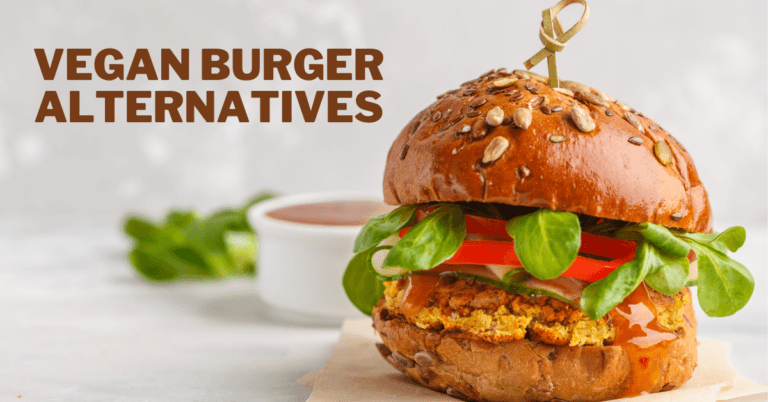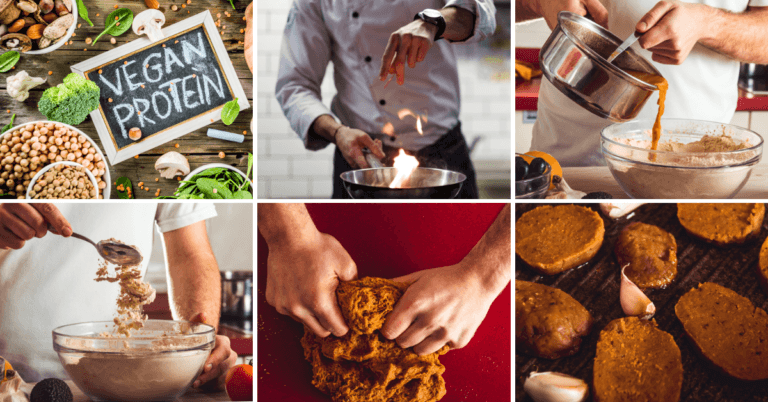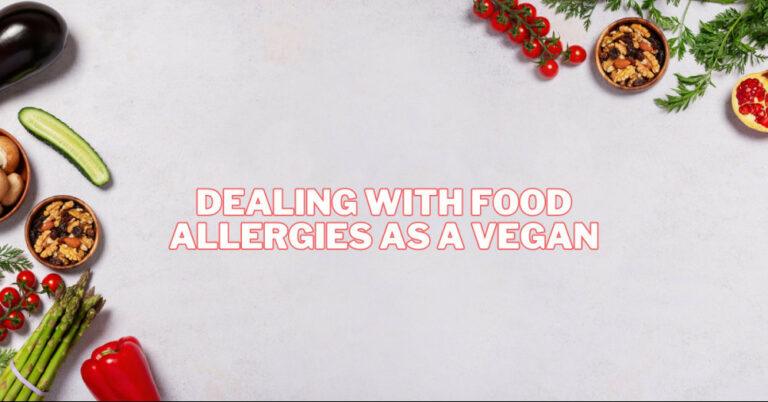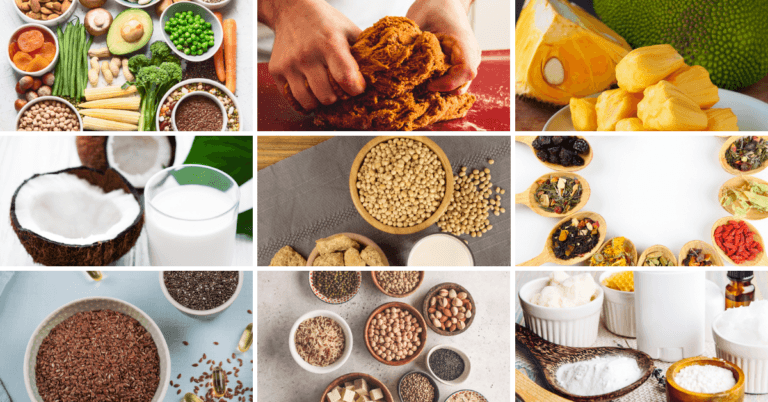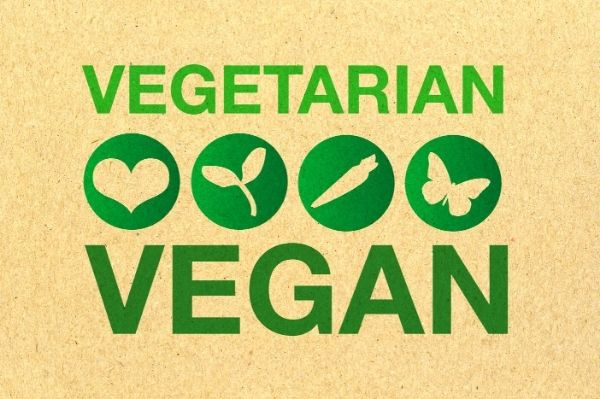Do Vegans Eat Eggs
Do Vegans Eat Eggs?
Navigating the intricacies of a vegan lifestyle often raises questions about various dietary choices and one of the most common queries is whether vegans include eggs in their diet.
The concept of veganism extends beyond a mere dietary preference, encompassing ethical, environmental, and health considerations.
This article delves into the complex and multifaceted topic of whether or not vegans consume eggs, shedding light on the reasons behind their stance and its broader implications.
Whether you're a curious omnivore or a prospective vegan, understanding the nuances of egg consumption within the vegan community can offer valuable insights into the diverse spectrum of dietary choices.
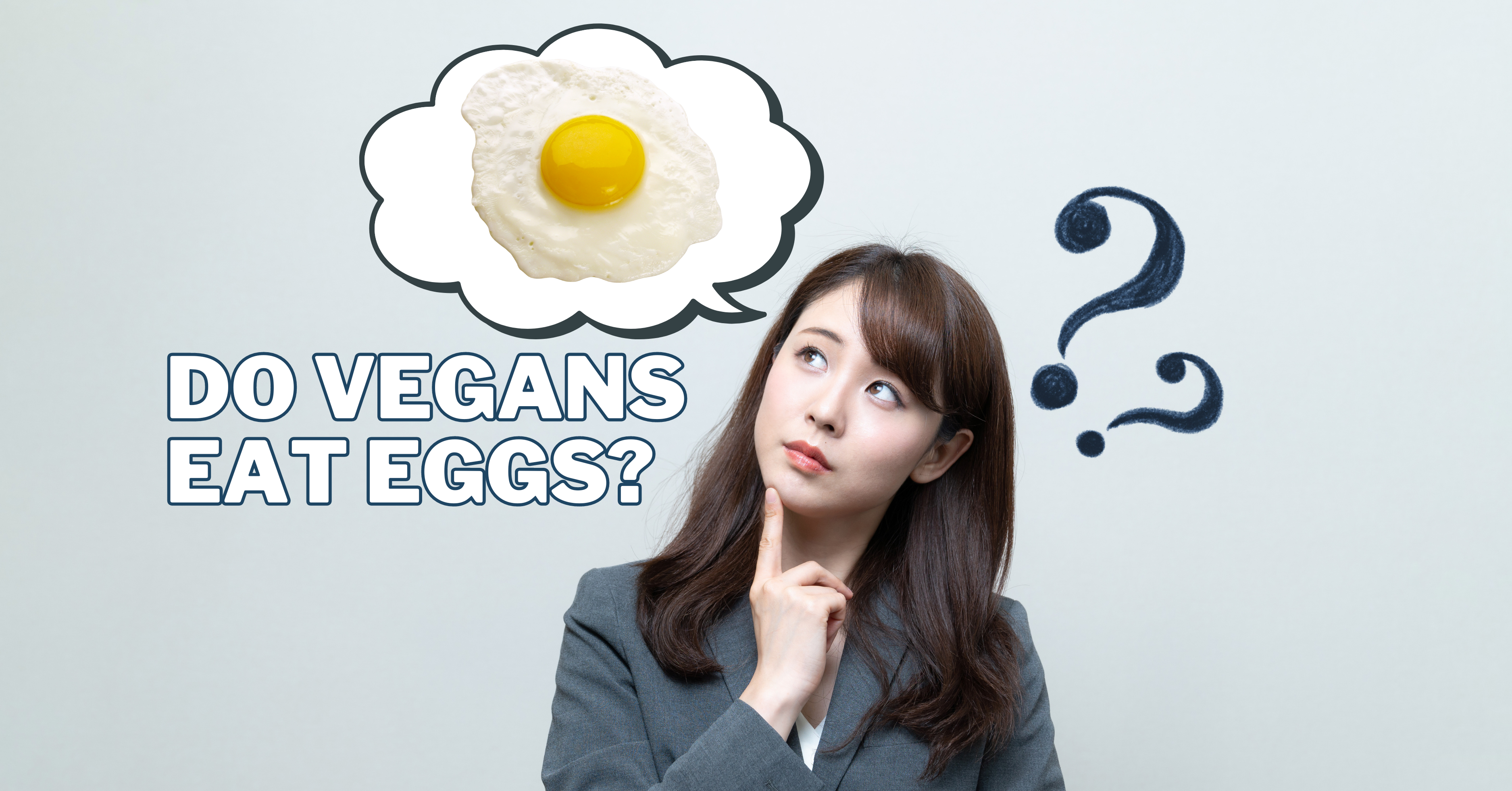
Why Don’t Vegans Eat Eggs?
Vegans abstain from consuming eggs for ethical, environmental, and health-related reasons. One primary factor is the treatment of hens in the egg industry.
Most commercially produced eggs come from hens confined to cramped and unsanitary conditions, often in battery cages where they lack space to move, spread their wings, or engage in natural behaviours. This confinement can lead to severe physical and psychological stress for the birds.
Moreover, egg production involves culling male chicks shortly after hatching, as they are not profitable for the egg industry.
Male chicks are often euthanized by inhumane methods, such as being ground up alive or suffocated. This practice contradicts the ethical principles of minimizing animal harm and cruelty, a core tenet of veganism.
Industrial egg production negatively impacts the environment, causing deforestation, water pollution, and greenhouse gas emissions.
The resources required to produce eggs, including feed, water, and land, are substantial compared to the nutritional value they provide. This inefficiency raises concerns about sustainability and the impact of egg consumption on the planet.
Additionally, health considerations play a role in the decision to avoid eggs. Some individuals choose to eliminate eggs from their diet to lower their cholesterol intake and promote heart health.
Essentially, the decision not to consume eggs aligns with the vegan philosophy of reducing animal harm, minimizing environmental impact, and promoting personal well-being.
As more people become aware of egg production's ethical and practical implications, abstaining from eggs has become integral to adopting a vegan lifestyle.
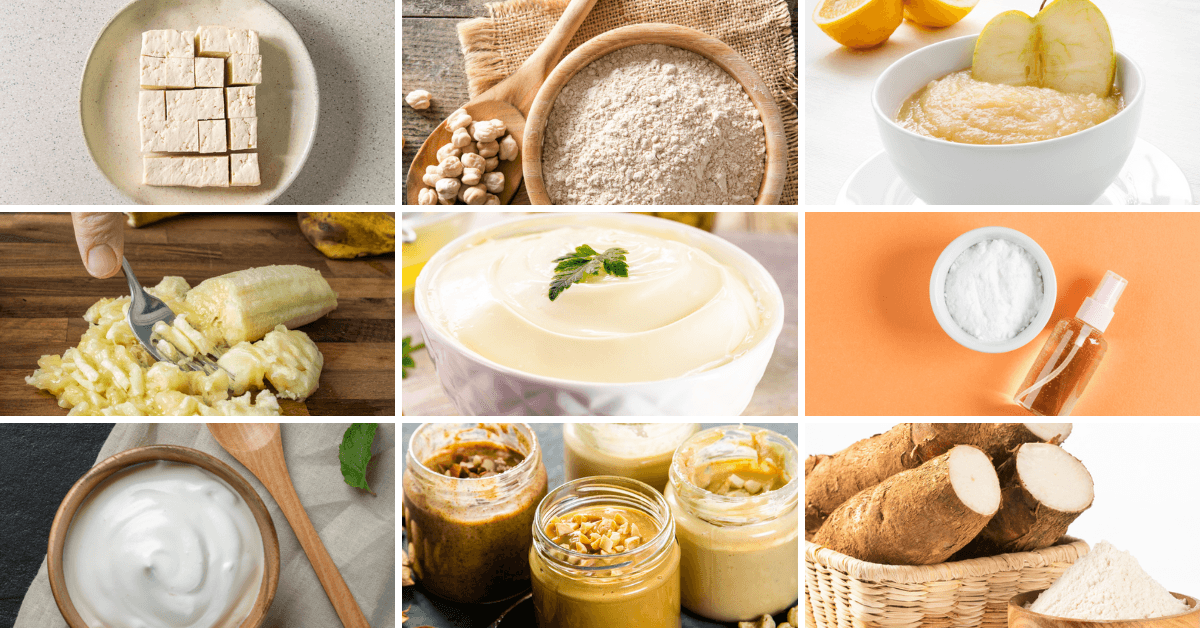
Vegan Egg Alternatives
Vegans have a variety of plant-based alternatives to eggs that can be used in cooking and baking.
These alternatives offer similar functionalities to eggs while aligning with vegan principles. Here are some popular vegan egg substitutes:
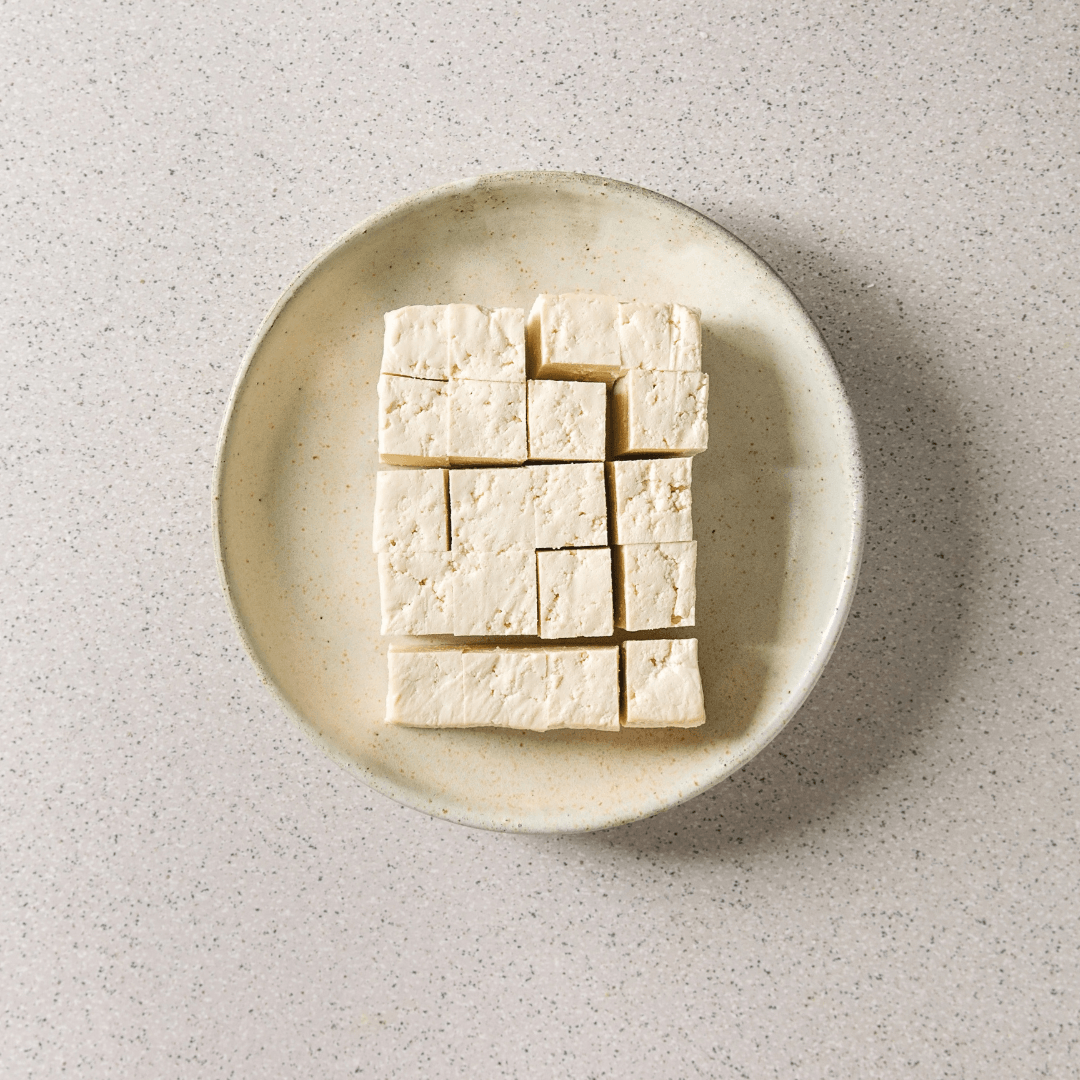
1. Tofu
Tofu, particularly silken tofu, is a versatile and popular choice among vegans seeking an egg alternative. With its smooth and custard-like texture, silken tofu can be transformed into a creamy mixture reminiscent of scrambled eggs.
When blended, silken tofu resembles traditional scrambled eggs, making it an excellent base for crafting vegan versions of classic breakfast dishes like omelets and breakfast burritos.
This tofu-based scramble can be further enhanced with various seasonings, vegetables, and spices to create a hearty and flavourful meal.
Beyond its ability to mimic the texture of scrambled eggs, silken tofu also serves as a binding agent, making it suitable for various recipes that require an egg as a binding component.
Silken tofu can be incorporated into baked goods like muffins, pancakes, and cakes to help hold the ingredients together and add moisture.
Its mild flavour seamlessly blends into sweet and savoury dishes, providing a neutral base that can adapt to various flavours.
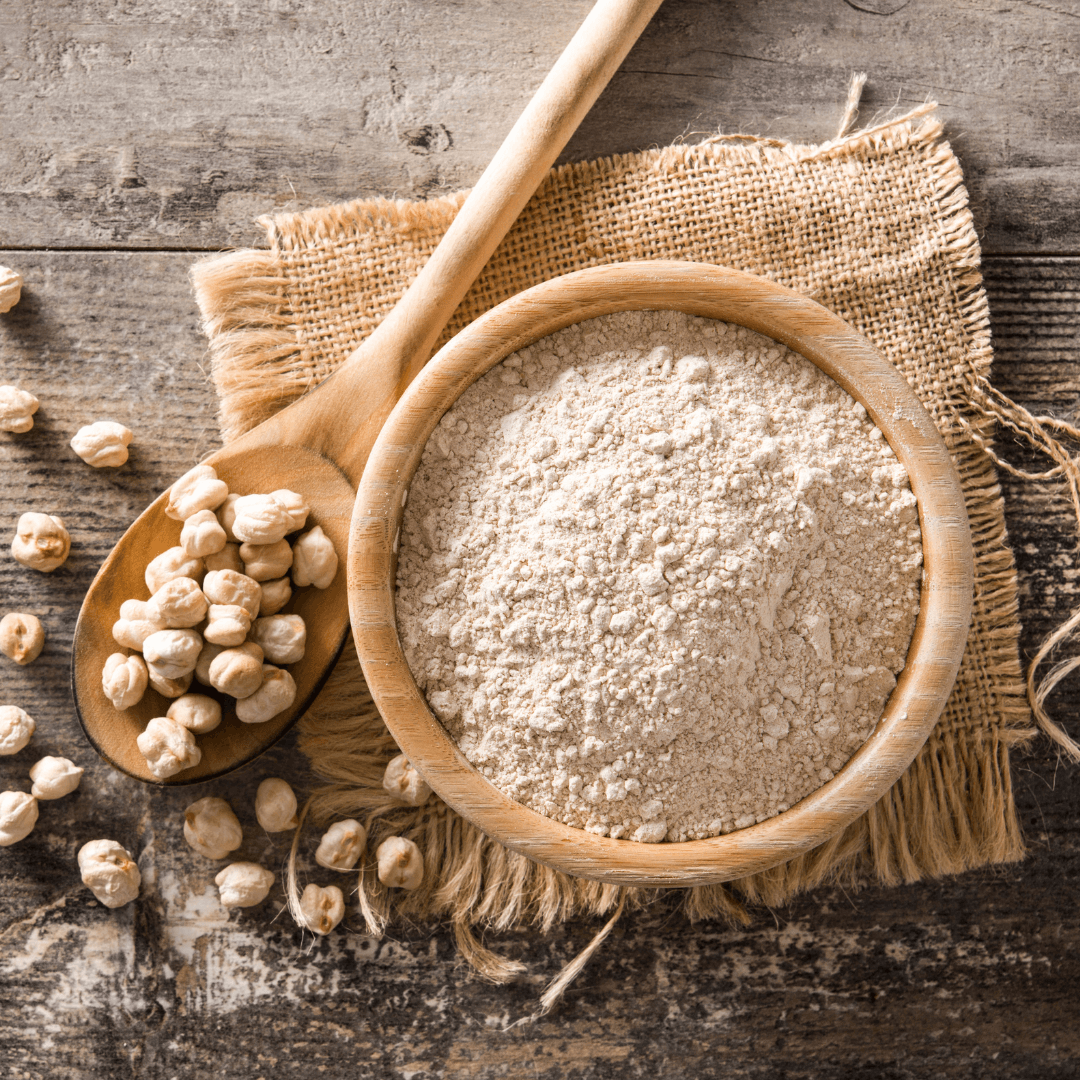
2. Chickpea Flour
Chickpea flour, a versatile and protein-rich ingredient, offers a fantastic alternative to eggs in various vegan recipes.
Commonly known as besan or gram flour, chickpea flour can be skillfully transformed into a batter that resembles the texture and functionality of eggs.
Mixing chickpea flour with water or plant-based milk creates a batter that is excellent for making vegan omelets, cakes, and pancakes.
When cooked, chickpea flour batter becomes firm and sets into a cohesive structure, similar to how eggs bind ingredients together.
This property makes it an ideal candidate for creating egg-free omelets, where the batter can be customized with various vegetables, herbs, and seasonings for a flavourful and satisfying meal. Chickpea flour's naturally nutty flavour adds a pleasant taste dimension to dishes.
Chickpea flour is not only a culinary marvel but also a nutritional powerhouse. It boasts a commendable protein content, offering essential amino acids that support muscle growth and repair.
Furthermore, chickpea flour is a good source of dietary fiber, aiding digestion and promoting a feeling of fullness. It is also rich in essential vitamins and minerals, including folate, iron, and magnesium, contributing to overall health.
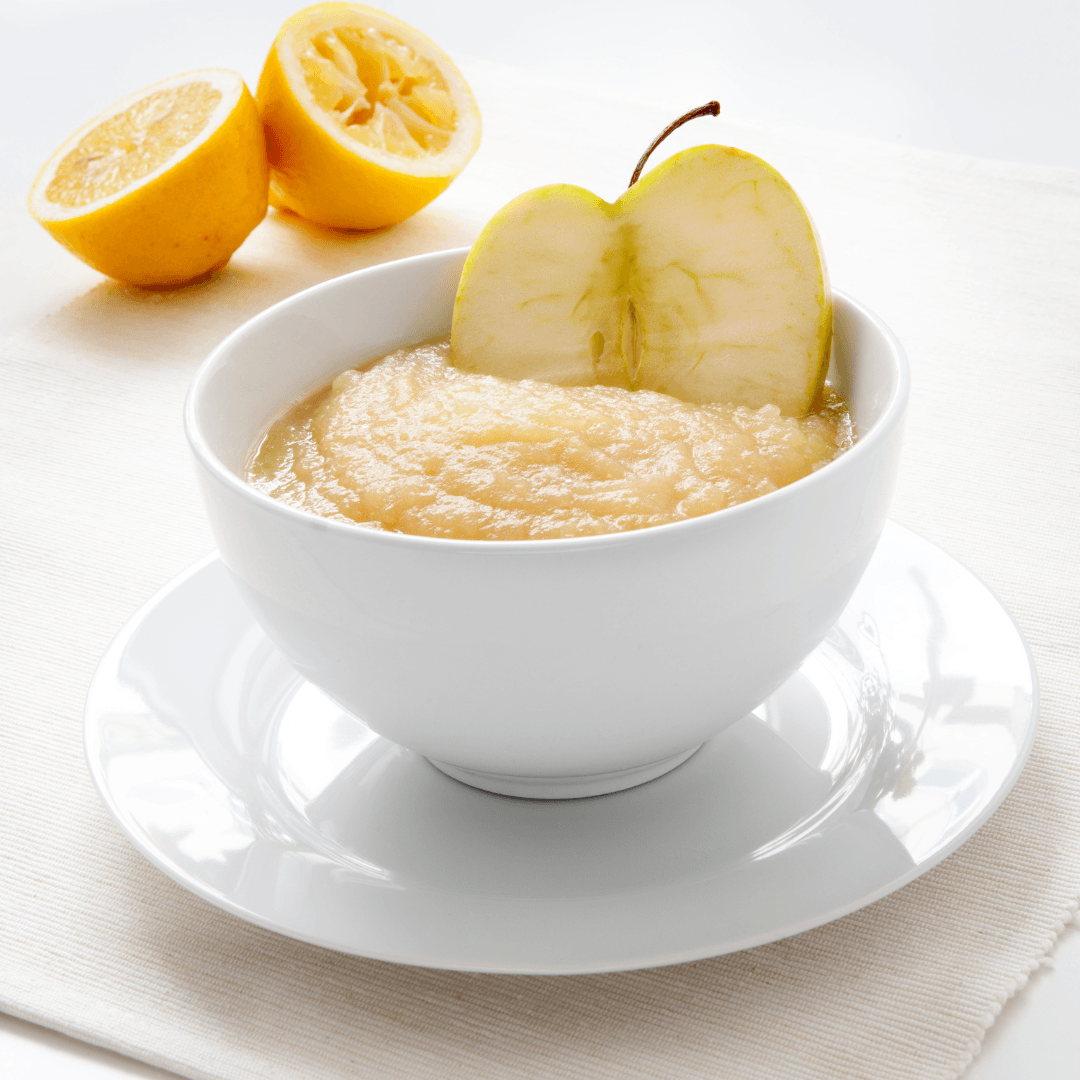
3. Applesauce
Unsweetened applesauce is a remarkable vegan substitute for eggs in various culinary creations. It seamlessly integrates moisture and binding properties into recipes.
This versatile ingredient excels in applications like muffins, pancakes, and cakes, where eggs traditionally play a crucial role.
Applesauce's inherent ability to maintain the desired moisture content in baked goods ensures that the final product remains tender and moist.
When incorporated into recipes, unsweetened applesauce contributes a subtly sweet flavour that complements sweet and savoury dishes.
It seamlessly blends with other ingredients, eliminating any concern of an overpowering apple taste.
As a binder, applesauce helps hold the ingredients together, ensuring the proper structure and consistency of the finished product.
This is particularly evident in baked goods like pancakes, muffins, and cakes, where the texture is essential for a satisfying eating experience.
Beyond its culinary benefits, unsweetened applesauce offers nutritional advantages. It contains dietary fiber, which supports healthy digestion and helps maintain steady blood sugar levels.
Additionally, applesauce provides vitamins and minerals, such as vitamin C and potassium, contributing to overall well-being.
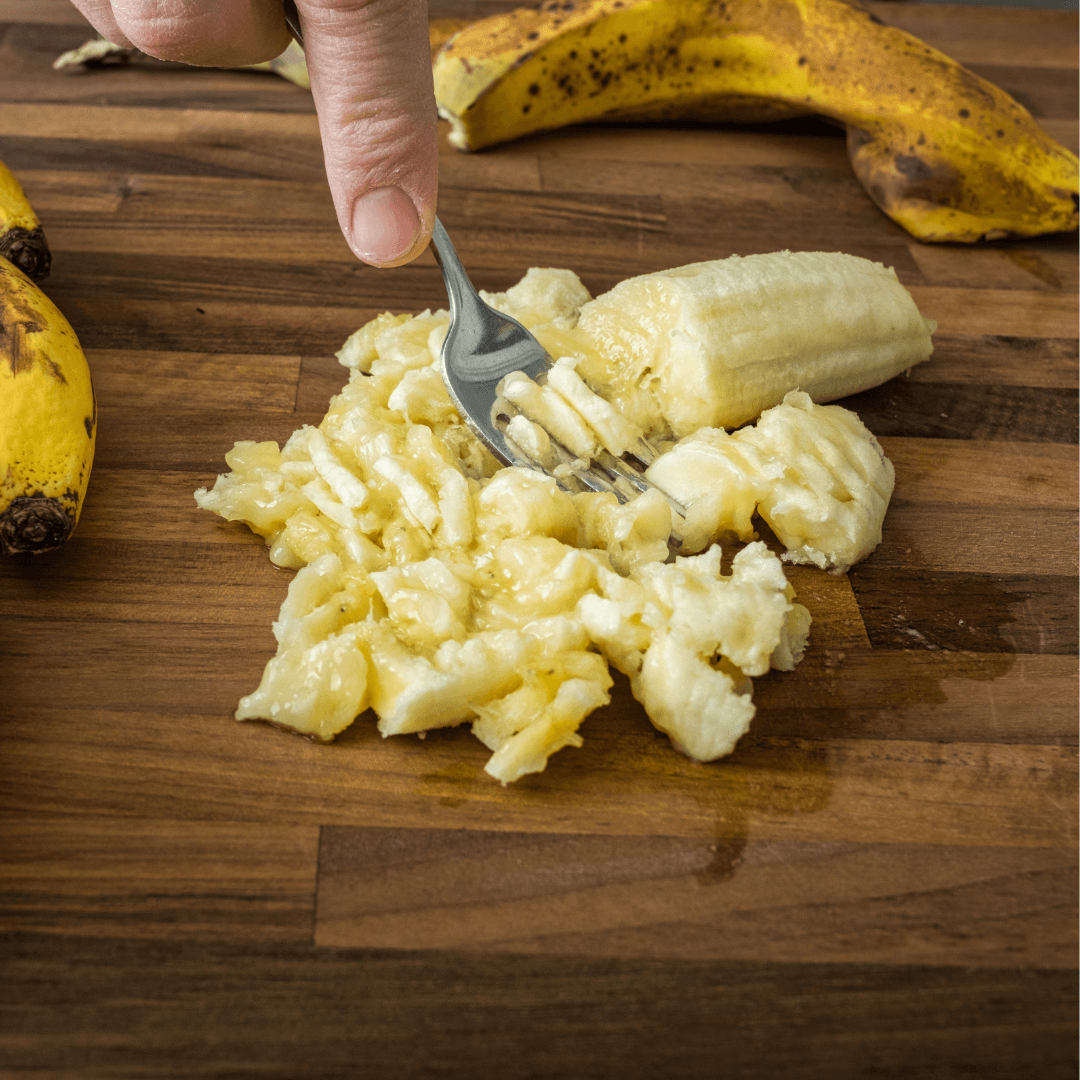
4. Bananas
Mashed ripe bananas emerge as a delightful and nutritious alternative to eggs, serving as a natural sweetener and an effective binding agent in many culinary creations.
Its versatility and inherent sweetness make it an ideal candidate for replacing eggs in recipes like pancakes, muffins, and quick bread, where eggs' binding and moisture-retaining properties are essential.
When incorporated into recipes, mashed ripe banana introduces a delicate sweetness that enhances the flavour profile of the final dish.
This natural sweetness complements various flavours, from chocolate's richness to whole grains' earthiness.
As a binding agent, mashed banana effectively holds the ingredients together, providing the necessary structural integrity for baked goods to rise and set correctly.
Beyond its culinary attributes, mashed ripe bananas offer many nutritional benefits. Soluble fibre, which promotes good digestion and lowers blood sugar levels, is abundant in bananas, making them a great source of dietary fibre.
Furthermore, they include vital nutrients, including potassium, vitamin C, and vitamin B6, as well as critical vitamins and minerals, which improve general health.
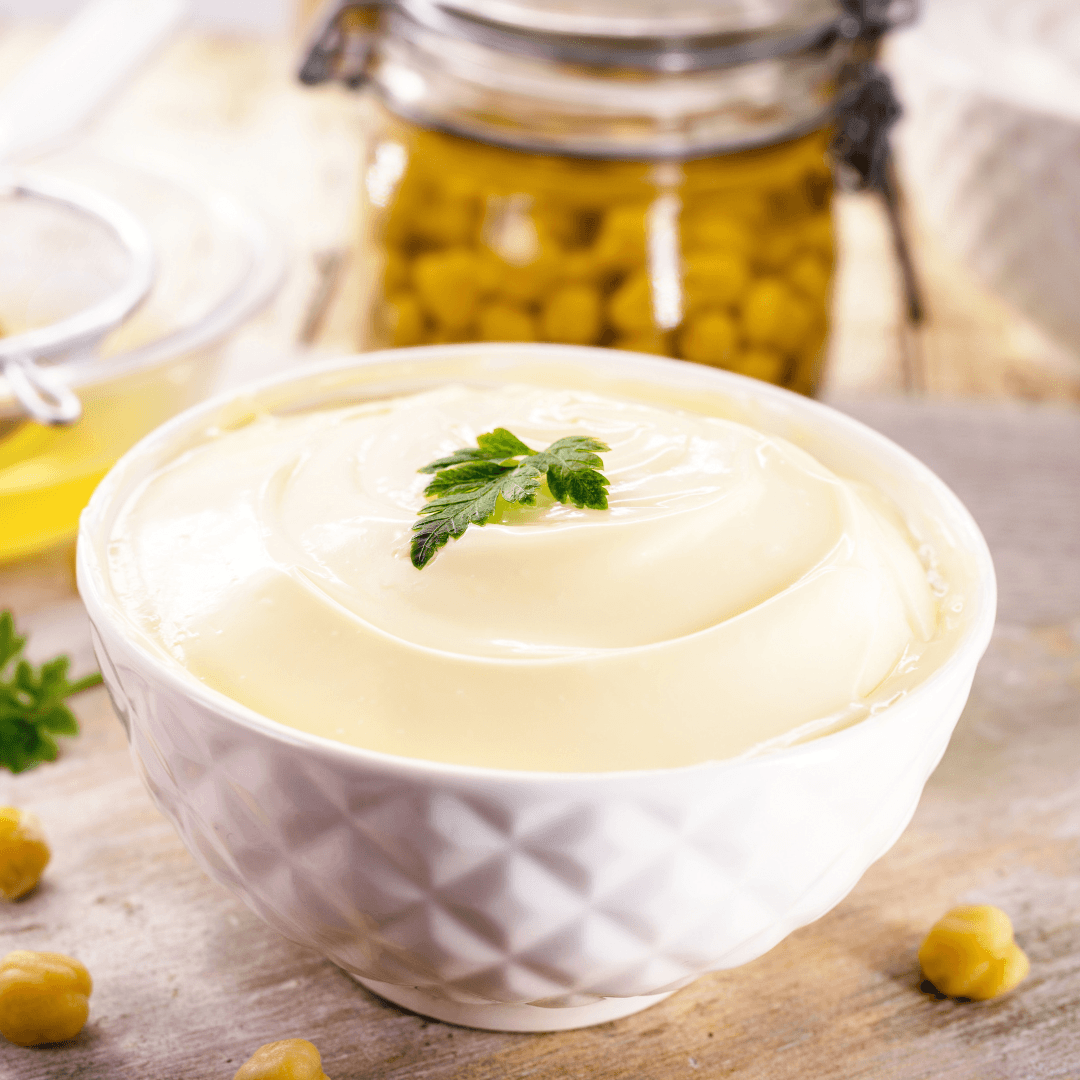
5. Aquafaba
Aquafaba, the ingenious and versatile liquid derived from canned chickpeas, has gained a reputation as a game-changing vegan egg substitute, particularly in baking and confectionery.
This seemingly unassuming byproduct of cooking chickpeas possesses remarkable properties that make it an excellent replacement for egg whites in various culinary creations.
Aquafaba's standout feature is its ability to mimic the texture and behaviour of whipped egg whites when beaten.
This magical transformation occurs due to the proteins and starches released from the chickpeas during the cooking process, which create a viscous and frothy liquid capable of forming stiff peaks.
This makes aquafaba a formidable candidate for whipping up fluffy meringues, delicate macarons, and decadent mousses traditionally relying on egg whites for structure and aeration.
In addition to its remarkable foaming abilities, aquafaba's neutral flavour ensures that it seamlessly integrates into a wide range of dishes without overpowering other ingredients.
This characteristic is especially advantageous in recipes where the distinctive taste of eggs would be undesired. Beyond its culinary merits, aquafaba is also a commendable example of food waste reduction, as it transforms a typically discarded component of canned chickpeas into a valuable ingredient.
Furthermore, aquafaba is a source of plant-based protein and soluble fiber, contributing to its nutritional appeal.

6. Vinegar And Baking Soda
Although commonly associated with household cleaning, vinegar and baking soda are also a dynamic duo that can work their magic in vegan cooking and baking.
Combined, these two pantry staples create a chemical reaction that releases carbon dioxide gas, resulting in a leavening effect that can impart a light and airy texture to various baked goods.
The vinegar and baking soda duo can admirably supplement recipes that call for eggs to provide lift and structure. The alkaline baking soda and vinegar combine to form carbon dioxide bubbles, which expand during baking.
The vinegar is typically white distilled or apple cider vinegar. This trapped gas lifts the dough or batter, creating a delicate and tender final product.
This leavening effect makes the vinegar and baking soda combination particularly suitable for recipes like muffins, quick bread, and pancakes, where a slight rise and fluffiness are desired.
The acidity of the vinegar also contributes to the overall flavour profile of the dish, often enhancing the tanginess or balancing out the sweetness.
One of the appeals of using vinegar and baking soda as an egg substitute is its simplicity and widespread availability.
Both ingredients are kitchen staples, and their interaction can serve as a reliable alternative in vegan baking. This allows individuals to enjoy their favorite baked treats without relying on traditional eggs.
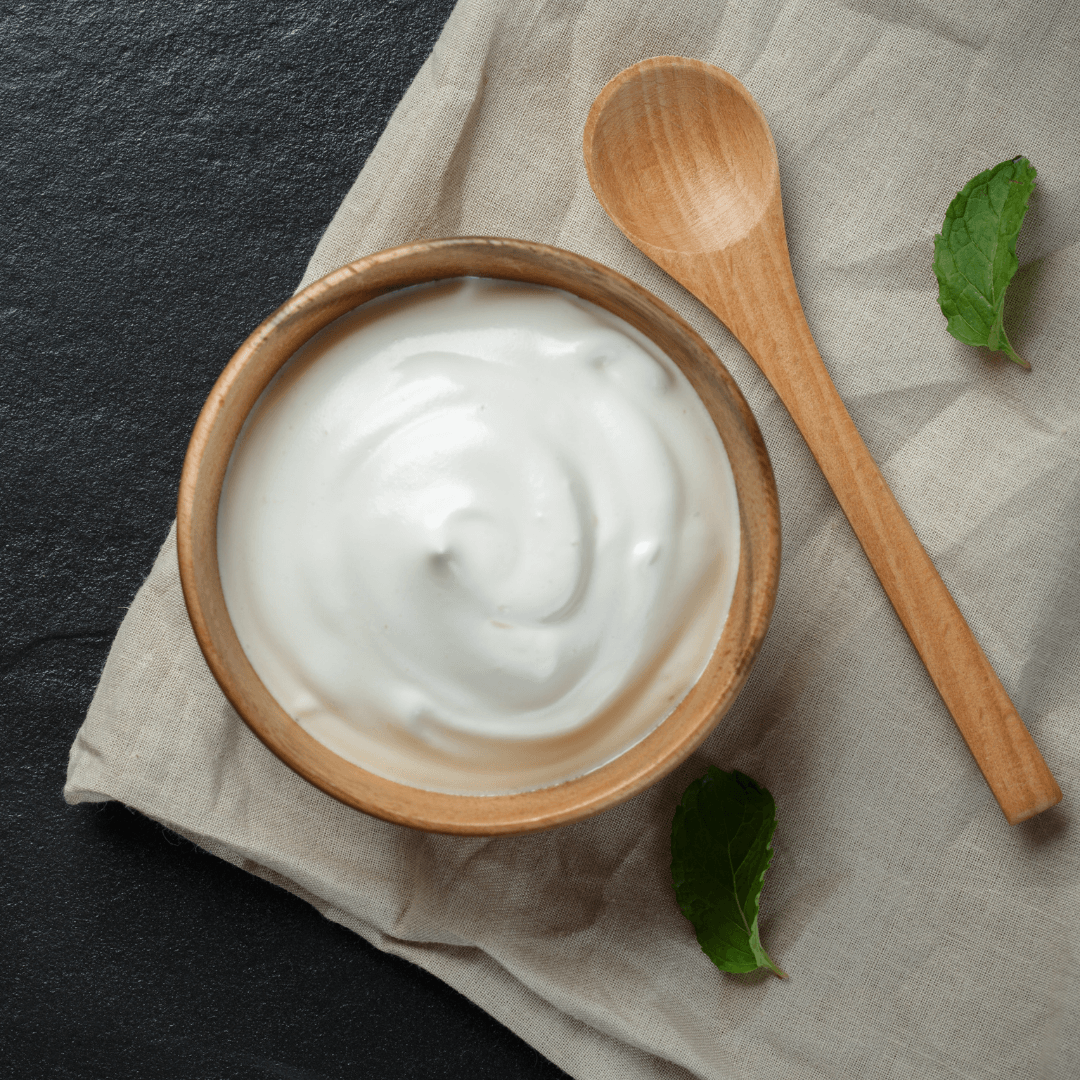
7. Yogurt
Non-dairy yogurt, a versatile and creamy alternative to traditional dairy-based yogurt, has become a valuable ingredient in vegan cuisine.
When used as an egg substitute, non-dairy yogurt can provide moisture, binding, and a subtle tanginess that enhances the flavour profile of various recipes.
In recipes where eggs are typically used to add moisture and help bind ingredients together, such as pancakes and muffins, non-dairy yogurt steps in admirably.
Its smooth texture blends seamlessly with other ingredients, creating a consistent batter or dough.
Whether you're whipping up a batch of fluffy pancakes or preparing a tray of delectable muffins, incorporating non-dairy yogurt can yield moist, tender, and satisfying results.
The lactic acid in non-dairy yogurt also aids in the leavening process, helping to create a light and airy texture in baked goods. This is particularly beneficial in recipes that require a rise, such as quick bread or cakes. Beyond its functional benefits, non-dairy yogurt brings a delightful creaminess and depth of flavour to recipes.
With various flavours and varieties available, from almond and coconut to soy and oat-based, non-dairy yogurt opens the door to culinary possibilities.
Whether seeking a subtle enhancement or a bold flavour twist, non-dairy yogurt offers flexibility and creativity to your vegan cooking endeavours.
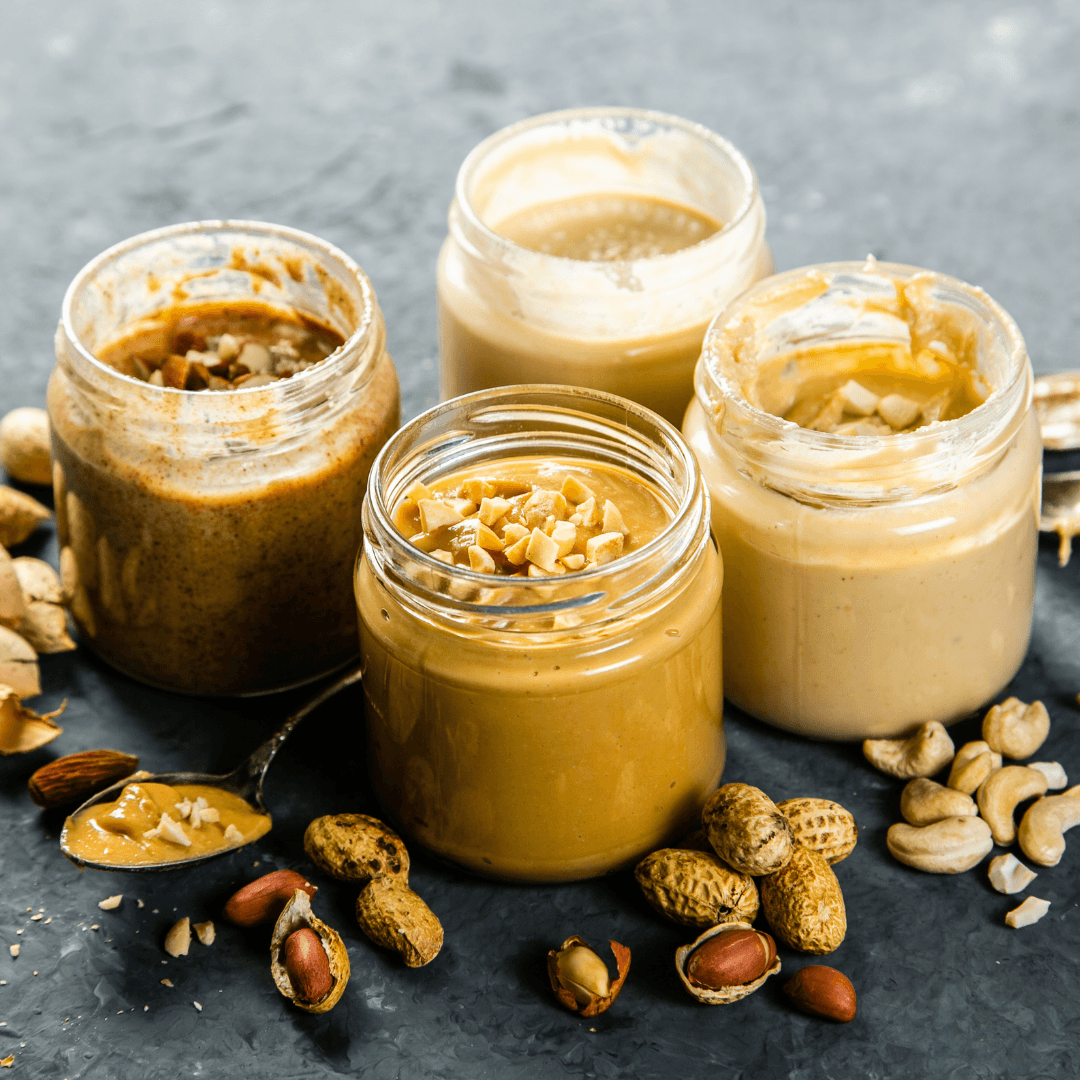
8. Nut Butter
Nut butter, such as peanut butter or almond butter, offers a creamy and nutty indulgence that enhances the flavour of baked goods and contributes to their texture and moisture.
These plant-based spreads are an excellent alternative to eggs in recipes requiring binding and richness. Nut butter provides a luscious and decadent quality to baked goods when used as an egg substitute.
Their natural oils and fats help moisten the batter or dough, resulting in tender and melt-in-your-mouth delicious treats. Whether crafting cookies, brownies, or energy bars, incorporating nut butter can elevate the overall taste experience and deliver a satisfying mouthfeel.
Nut butter also brings a certain level of viscosity that helps hold ingredients together, similar to the role eggs play in binding.
This characteristic is particularly valuable in recipes like no-bake bars or granola, where the mixture needs to adhere and maintain its shape.
Moreover, the protein content in nut butter lends additional structure and stability to the final product. Nut butter is rich in heart-healthy fats, protein, and essential nutrients like vitamin E and magnesium.
This makes them a wholesome choice that imparts flavour and texture and contributes to the overall nutritional profile of your baked creations.
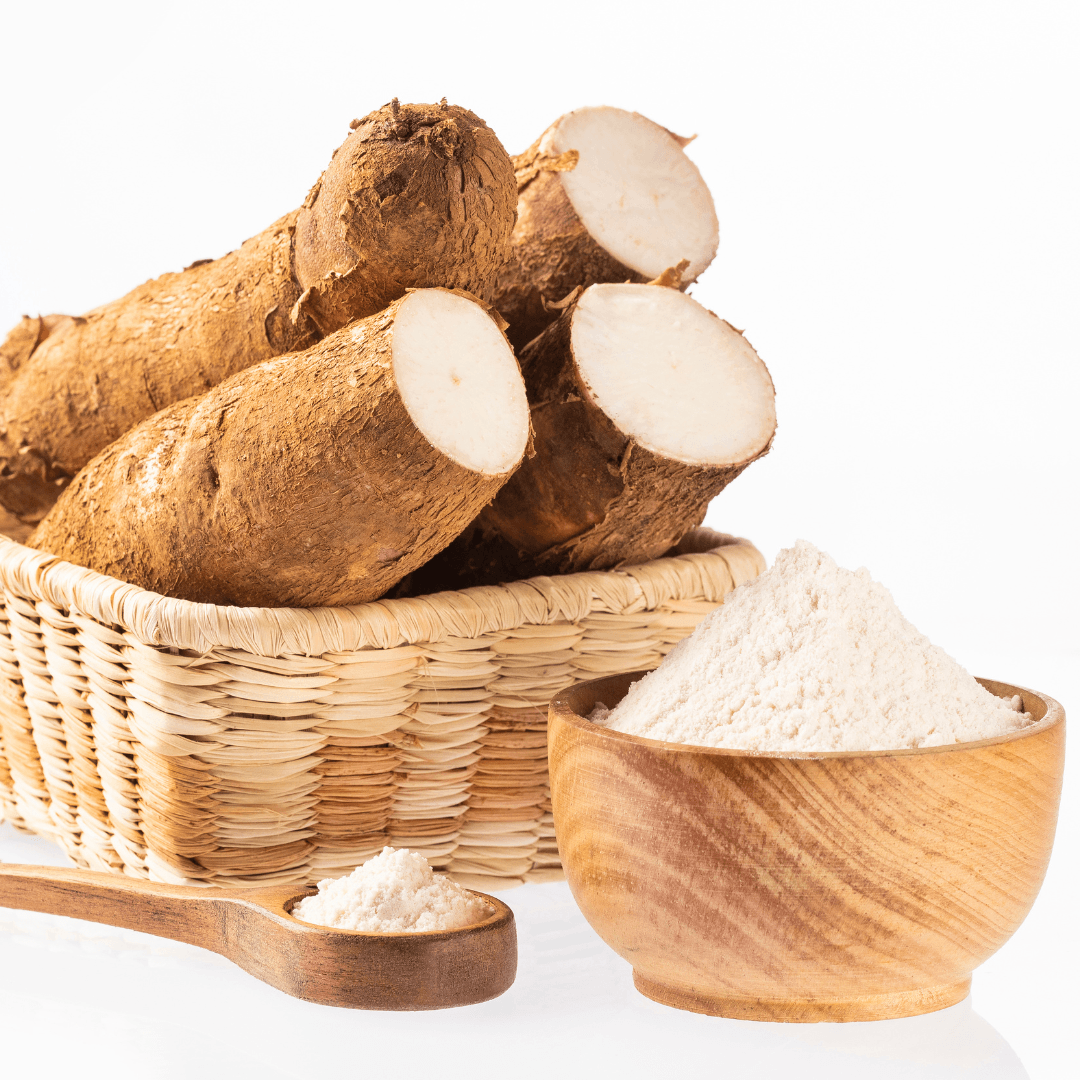
9. Arrowroot Powder
Arrowroot powder, derived from the rhizomes of the arrowroot plant, is a versatile and gluten-free ingredient that is an effective thickening agent and binding agent in various culinary applications.
In vegan cooking, arrowroot powder is a valuable substitute for eggs in recipes that require thickening and cohesion, such as sauces, soups, gravies, and puddings.
Arrowroot powder uniquely creates a smooth and silky texture in sauces and puddings when used as an egg alternative.
It works by absorbing liquid and forming a gel-like consistency, helping to bind the ingredients together and give the dish its desired thickness.
This makes it an excellent choice for vegan sauces and gravies, providing a glossy and velvety finish without the need for eggs. In addition to its thickening properties, arrowroot powder is valued for its neutral flavour profile.
Unlike some other egg replacements, arrowroot powder does not impart any distinct taste to the final dish, allowing the ingredients' natural flavours to shine.
This makes it particularly suitable for recipes where the original taste is crucial. Using arrowroot powder as an egg substitute is relatively straightforward.
Mix 1 tablespoon of arrowroot powder with 2-3 tablespoons of water to create a slurry-like mixture to replace one egg.
This can then be added to your recipe as a binding and thickening agent, ensuring a cohesive and well-textured result.
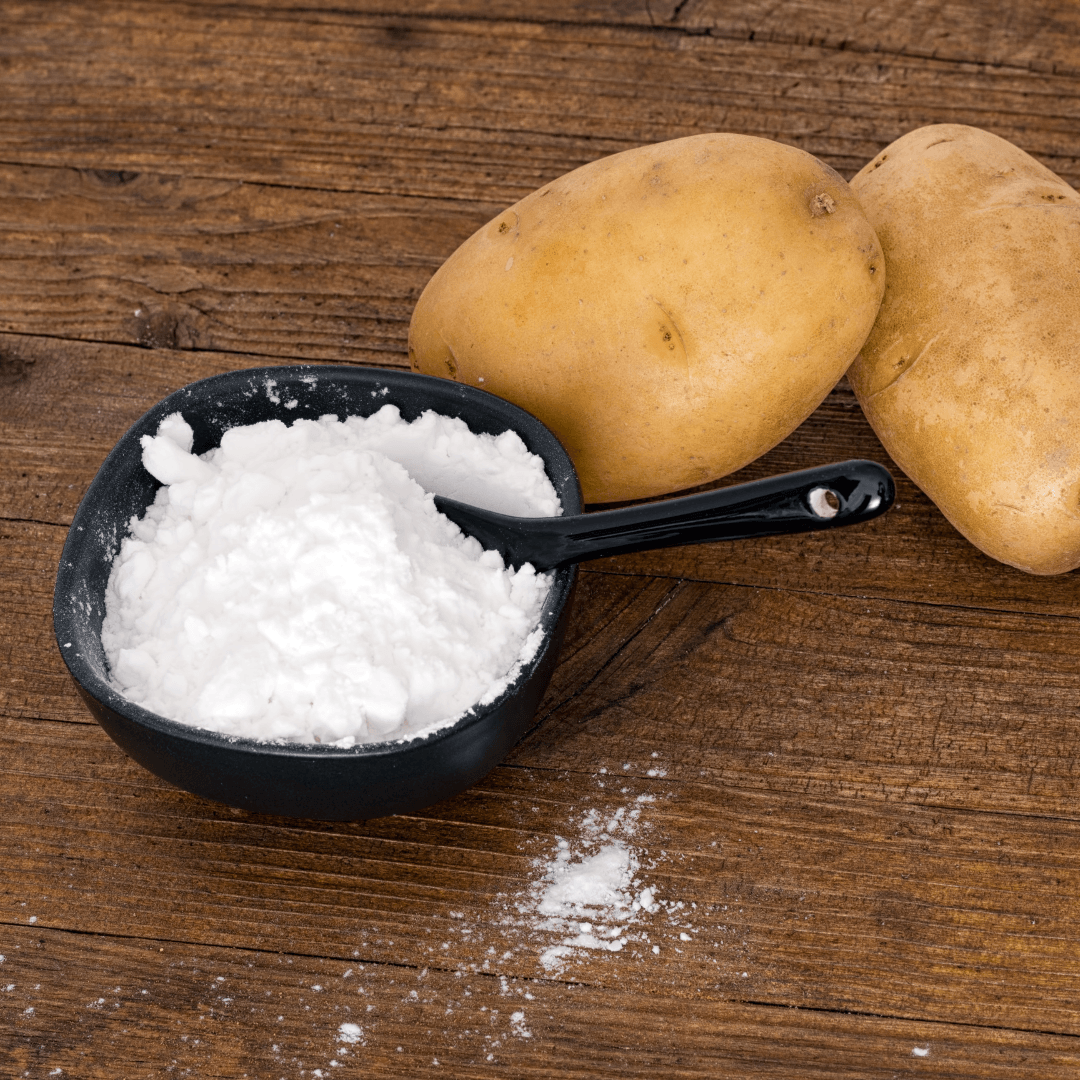
10. Potato Starch
Potato starch, derived from potatoes, is a versatile, gluten-free ingredient that is an excellent thickening and binding agent in various culinary creations.
In vegan cooking, potato starch is a valuable substitute for eggs in recipes that require viscosity, cohesion, and texture enhancement.
When used as an egg alternative, potato starch's unique composition allows it to absorb and retain liquid, forming a gel-like consistency.
This property makes it particularly effective for thickening sauces, soups, and gravies and provides stability and structure in baked goods.
Its ability to bind ingredients together helps create a cohesive texture, ensuring your recipes hold their form without needing eggs.
One of the notable advantages of using potato starch as an egg replacer is its neutral flavour profile.
Potato starch doesn't impart any distinct taste to the final dish, allowing the original flavours of the ingredients to shine through.
This makes it suitable for sweet and savoury recipes, preserving the integrity of your culinary creations.
Incorporating potato starch into your vegan cooking is simple. Mix 1 tablespoon of potato starch with 2-3 tablespoons of water to create a slurry to replace one egg. This mixture can then be added to your recipe to achieve the desired thickness and binding effects.
Whether making a velvety vegan gravy or a delectable plant-based custard, potato starch offers a reliable and effective way to achieve the desired texture and consistency without relying on eggs.
Conclusion
In conclusion, whether vegans eat eggs highlights a fundamental principle of the vegan lifestyle, which is avoiding animal products and exploitation.
While eggs are a common dietary staple for many, the ethical concerns surrounding the egg industry, including animal welfare issues, environmental impact, and health considerations, lead many vegans to exclude eggs from their diets.
The emergence of various egg alternatives and innovative cooking techniques has empowered vegans to create a wide array of delicious and nutritious dishes without the need for eggs.
Vegans choose to abstain from eggs as a conscious effort to align their dietary choices with their values of compassion, sustainability, and health.
The shift towards plant-based alternatives promotes a more compassionate treatment of animals and reduces the environmental footprint associated with egg production.
As the demand for egg-free options grows, the culinary world continues to evolve, offering a plethora of creative and satisfying egg substitutes that enable vegans to enjoy a diverse and fulfilling diet.
The choice to exclude eggs from a vegan diet is ultimately motivated by a desire to advance a more sympathetic and sustainable food system.
While individual preferences and reasons for adopting a vegan lifestyle may vary, the overarching goal remains to make choices that align with a kinder, more ethical, and environmentally conscious way of living.
I trust you enjoyed reading the article about Do Vegans Eat Eggs? Please stay tuned. I will be posting more blog posts very shortly.
JeannetteZ
>>>Please click here to read my Vegan Travel Guides To World Destinations<<<
>>>Want To Learn How To Create Delicious, Cruelty-Free, Healthy AND 100% Vegan Meals? Try These Awesome Vegan Cooking Courses With A Free 7-DAY MEMBERSHIP<<<
Your Opinion Is Important To Me
Do you have thoughts, ideas, or questions? I would love to hear from you. Please leave me your questions, experiences, and remarks about Do Vegans Eat Eggs in the comments section below. You can also email me at Jeannette@LivingTheVeganLifestyle.org.
Disclosure
This post may contain affiliate links. I earn from qualifying purchases as an Amazon Associate and other affiliate programs. Please read my full disclosure.
Here are some links to some of my favourite articles:
Best Vegan Chicken Nuggets In Canada

